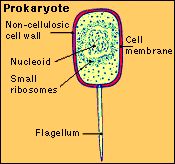Fossils and the history of life - What can the fossil record tell us about the origins of cells?

The evolution of cells
There was nothing inevitable about the evolution of cells; unadorned replicating molecular systems could have persisted, the molecules being replicated as their component building blocks bonded to them and formed copies, or near copies, of the whole. There are limits to how complex a system can evolve in this molecular form. For the system to become more complex, it needs enzymes and metabolic systems that enable it to harvest resources more powerfully, or to exploit the resources better by converting them into the molecular units needed for replication.
This step is difficult for at least two reasons:
• mutational error, which becomes increasingly damaging as the replicating molecule increases in size.
• any advantageous innovation; for example, one that can produce useful molecules will share its produce with all the other competing replicating molecules in the locality. A “selfish” replicating molecule, that used resources manufactured by others but did not itself manufacture them, would have a selective advantage over other replicating molecules that both manufactured and used resources . This second difficulty was probably overcome by the evolution of cells.
If the replicating molecules are enclosed within cells, the products of their metabolism are confined to the cell that produced them and are not available for any selfish replicating molecules outside.
The image opposite is of a modern prokaryotic cell, found in primitive organisms and probably little changed from the earliest cells to originate.
The cell biologist Marc Kirschner discusses the evolution of cellular life.
| Next |



